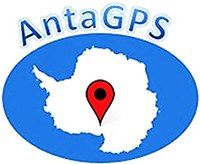AntaGPS
Antarctica as a global pollution sensor: aquatic and terrestrial organisms as bio-indicators and meta-analysis of pollutant trends
LINKS

Financing program
Programma Nazionale di Ricerca in Antartide (PNRA)
Antarctica, despite its geographical isolation, is not shielded from the negative impact of human activities. The AntaGPS project aims to transform Antarctica into a global pollution sensor by utilizing its endemic organisms as bioindicators. Employing a multi-level approach, AntaGPS seeks to achieve biomonitoring of both traditional and emerging pollutants, assess their effects, and analyze contamination trends over recent decades. To provide a comprehensive overview, the project will conduct a systematic review and meta-analysis of literature data. In addition to newly collected samples, previously preserved Antarctic organism samples will be reanalyzed. The research activities align with the objectives of establishing the Ross Sea Marine Protected Area (MPA). Specifically, AntaGPS serves as a functional tool for monitoring the ecosystem within the new MPA, addressing both initial and historical conditions. The synergy across diverse disciplines (biology, chemistry, meta-analysis) aims to overcome the fragmentation often observed in Antarctic research. AntaGPS involves four operational units (UOs) and three international partners working collaboratively. The project’s strength lies in integrating data from innovative ecotoxicological analysis methods and applying advanced statistical techniques. The proposal’s feasibility is ensured by the team’s expertise and the synergy among UOs in research areas, along with access to crucial and innovative instrumentation. Ultimately, the results will provide a comprehensive picture of global pollution, guiding strategies for protecting both Antarctic and non-Antarctic ecosystems.
Project start date
07/08/2020
Project end date
06/02/2024
Duration (months)
42 (18 month extension)
PI Institution
Università della Calabria
Other subjects involved
Università di Padova
Università di Bologna
Università di Camerino
Contribution requested by the University
€ 10.707,24